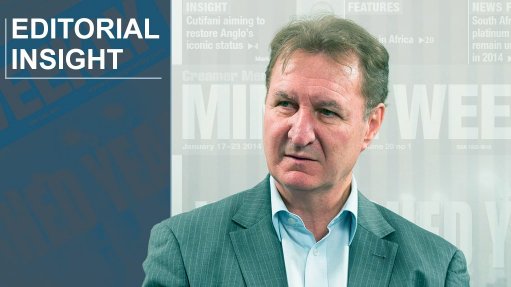
The response of the Chamber of Mines to last week’s Budget shows that mining is largely in sync with Finance Minister Pravin Gordhan’s aims of fostering competitive growth and greater social equity.
But what the chamber sees as “potentially worrisome” is Gordhan’s surprise 33% hoisting of dividend withholding tax – from 15% to 20% – which has set the cat among the pigeons.
The chamber makes the point that, when combined with company tax, the new dividend tax lifts the overall company tax rate to a level above the average company tax rate of Organisation for Economic Cooperation and Development, that club of rich countries.
The imposition is immediate and even dividends announced ahead of the Budget for payment after it are caught in Gordhan’s new tax net.
Mining analysts were all over Sibanye CEO Neal Froneman when he reported the day after the Budget, and Gold Fields had to rush out a statement last Friday informing shareholders that the dividend it announced six days before the Budget would be subject to the new tax 20 days after it, with Harmony doing the same hot on its heels.
Sibanye has already made it clear that the sharp rise may cause it to change its dividend policy.
Up to now, Sibanye’s first call on free cash after stay-in-business capital expenditure has been to pay dividends amounting to at least 35% of normalised earnings. (Also see page 19 of this edition of Mining Weekly.)
But, as a result of the sudden tax rise, Froneman assured questioning analysts of a rethink.
A plus for mining was that the Budget speech and the Budget Review made repeated reference to the critical importance of achieving policy and regulatory certainty as a condition for encouraging greater investment in mining and in the economy more broadly.
To this, the chamber added that the policy and regulatory environment had to, in addition to being certain, encourage competitiveness too.
The chamber also appreciated Gordhan’s reference to the need for proper application of Section 54 operational stoppages by the Department of Mineral Resources (DME) so that these contributed to both improved safety and enhanced contributions to the fiscus through the South African Revenue Service (SARS).
The contributions by mining companies to the fiscus through company taxes and royalties were, the Minister acknowledged, clearly a crucially important feature of fiscal planning, which had been needlessly disrupted by DME officials acting in ways that the courts have found to be errant and damaging to the economy.
Clearly, the DME has been shooting SARS, its fellow government department and party faction bedfellow, in the foot.
If the DME had not acted irrationally, SARS could have been made to look better, instead of being blamed for the R30-billion tax collection shortfall that contributed to the Budget deficit.